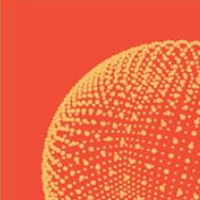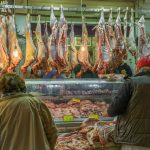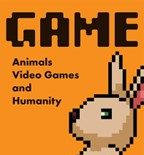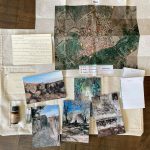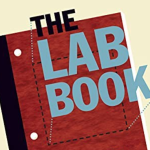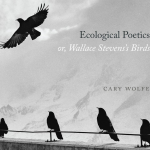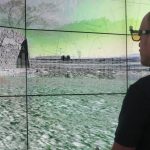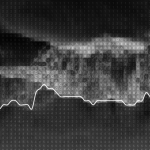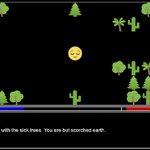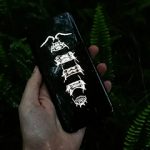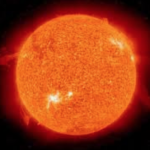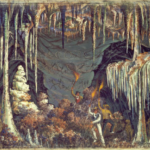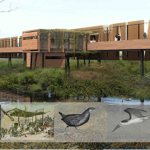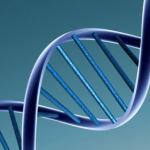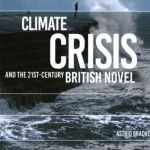2026
In this review, Deena Larsen provides a fantastic overview of N. Katherine Hayles' latest book, Bacteria to AI. By diving deep into the panpsychic realities of Hayles's views on cognition, Larsen ultimately questions whether electronic literature could be integral to understanding the umwelt(s) of AI.
Anna Nacher connects the ecosystem within Coimbra's Biblioteca Joanina to networks of care within academia and, in this speech originally given at Joseph Tabbi's festschrift, thanks Tabbi for his role as friend and mentor. As part of this, Nacher stresses that time is essential to building the type of service Joe has performed through his career; the building of community.
2025
Gabriela Jarzębowska reviews Interpreting Meat by Teddy Duncan Jr. By unmasking the hidden libidinal and discursive investments in meat, Duncan urges us to imagine a different kind of relationship with animals—one grounded not in domination or guilt, but in awareness, responsibility, and a reshaping of desire itself.
2023
What can video games teach us about our relationship with animals? Hanna Hellesø Lauvli's review of GAME by Tom Tyler urges us to see life from the other side of the food chain.
A post-closing catalog essay on a curious and original exhibition, one that rethinks the very idea of a group show, from singular research journeys by Kate Collyer (not her first) to Alaska, Megan Porpeglia to Sardinia (on a residency for the first time visiting her family roots), and Lorrie Fredette to Cape Cod. Like McElroy's own literary works, these twenty-two artworks are presented through several shifting lenses.
2022
What is a humanities lab? How do we distinguish between a lab in the humanities and a lab in STEM--especially in various lab processes and factors that include "technicians, technologies, traditions, techniques, and trajectories"? In his review of Darren Wershler, Lori Emerson, and Jussi Parikka's book The Lab Book, Jason Lajoie outlines the ways in which labs and lab culture have expanded to make room for making.
What Mario Aquilina and Ivan Callus accomplished in their "13 Ways of Looking at Electronic Literature", Lisa Swanstrom does for Ecocriticism. Taking as her starting point, Cary Wolfe's book on Wallace Stevens, Swanstrom explores each and every one of Stevens's "13 Ways of Looking at a Blackbird." What emerges, alongside Wolfe's ecocriticism is a resurgence, in literary studies, of the art of close reading.
2021
In this article, Kelsey Cameron and Jessica FitzPatrick propose attunement, a conceptual intervention that returns lived experience to critical making. They argue for attunement in three areas: disciplinary recognition of making, labs and other university maker spaces, and campus-community engagement. Attunement helps bring equity into critical making, highlighting how larger systems shape individual acts of making.
2020
Roderick Coover and Scott Rettberg reflect on the cultural values, political debates, power structures and architectures of exploitation underlying much of contemporary digital culture. As digital artists and collaborators, they also identify aesthetic reactions that actually combat what they critique. But for this to happen, we need literary works that are themselves produced, and actively circulating within digital environments.
A portion of the essay, focused on the ToxI*City project, is adapted from an earlier discussion published in ebr: Voices from Troubled Shores: Toxi•City: a Climate Change Narrative
Following the work of Jennifer Gabrys (in Program Earth), Carter contends that electronic literature has the potential to function as a mode of experimental sense-making. By exploring works by Tina Escaja, Mark Sample, and J. R. Carpenter, Carter reveals the limits and potentials of our data-driven epistemes - to expose that which goes unseen, and highlight its significance for how we come to know and respond to the challenges ahead.
By now, Cultural Ecology, Ecocriticism, and Environmental Humanities can tell us all we need to know about climate change. What's still needed, however, is for authors and artists to reconceptualize environmental issues as social and human questions rather than mere technical ones.
Fostering a sense of connection or engagement towards the more–than–human world, or what David Abram has termed the “sensual world,” has the potential to allow humans greater understanding of our ecological place in inter–species communities. Digital artist Alinta Krauth enacts this understading with Diffraction, a mobile digital writing artwork that encourages users to experience a heightened sense of more–than–human relationality while outdoors. Krauth's practice–led research advances her argument "by using locative media, and emplaced play, as positive forces for considering our relationships with wild nonhuman Others."
Citing Catherine Gallagher on fictionality’ as the ontological ground of the novel,’ LeMenager seeks a similar `alternative grounding’ for progressive, transgenerational social change in a time of epistemic and ecological crisis. The essay is one of many selected for co-production in ebr and our two collections from Bloomsbury Academic, Post-Digital: Critical Debates from electronic book review .
2019
This collection emerges from a panel hosted by the Modern Language Association's MS Forum on Visual Media (http://naturalmedia.org/titles/) in 2017. "Natural media" re-valuates the communicative potential of natural spaces, especially in instances where symbolic import collides with raw matter in a manner that hides from, disguises, or elides stark reality. It considers intersections, collisions, tensions, opportunities, and affordances that arise in the discussion of "Natural Media," both broadly conceived and in its contributors' particular areas of research. It is also in close conversation with research inspired by a previous gathering on a closely related topic: Digital and Natural Ecologies.
Toward a more expansive standard of botanical, graphical, ecosystemic and (not least) digital realism.
Can we again devise bots, in the tradition of Nigel Leck's AI_AGW, capable of staving off environmental disaster and saving humanity from its own stupidity? Twitter has censored this particular bot that Leck created ¨with the singular mission of hunting down false claims made by climate change deniers, calling them out, and correcting them with information linked from peer-reviewed essays in scientific research journals.¨ With this interview, ebr and our Natural Media co-editors celebrate and memorialize this noble, though brief realization of the critical and creative potential of community built digital media.
A slightly different version of this work originally appeared as part of a longer article, "The Architectural History of Disappearance: Rebuilding Memory Sites in the Southern Cone," in the December 2014 issue of the Journal of the Society of Architectural Historians. I am grateful to the University of California Press for permission to reproduce portions of that work here.
With Gaia theorist Lynn Margulis and posthumanist Bruce Clarke, Diana Leong argues against the fetishizing of genes and seeks an alternative to the modern synthesis of Darwinian natural selection and Mendelian inheritance. These amodern, posthumanist approaches instead offer a gradual accumulation and transmission of mutations, and a coevolutionary embeddedness within diverse environments and the socio-political structures responsible for them.
Elizabeth Callaway reviews Astrid Bracke's Climate Crisis and the 21st Century British Novel, which she uses as a jumping off point to explore the possibilities of a "soft" representation of climate in realist literary fiction, in particular Zadie Smith's NW.
Smaller than anything the human eye can see, yet not so small as the elementary waves and dark matter known to modern science: the particle is an appropriate figure for our present, intermedial ¨shuttling between entities at different scales.¨
